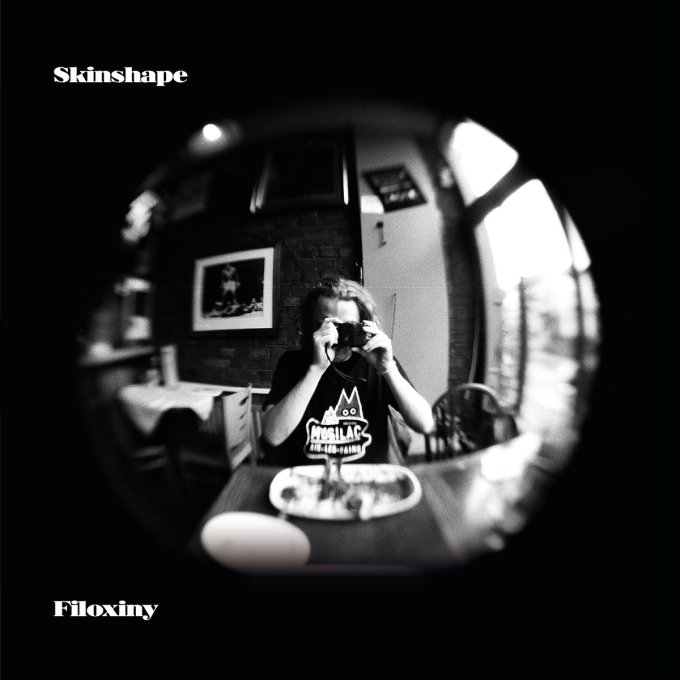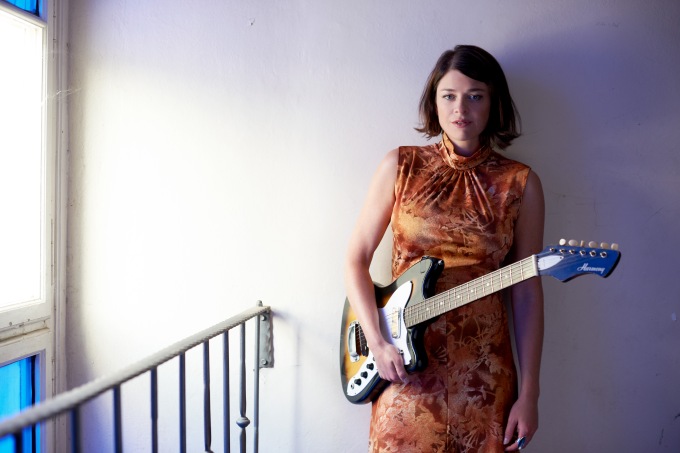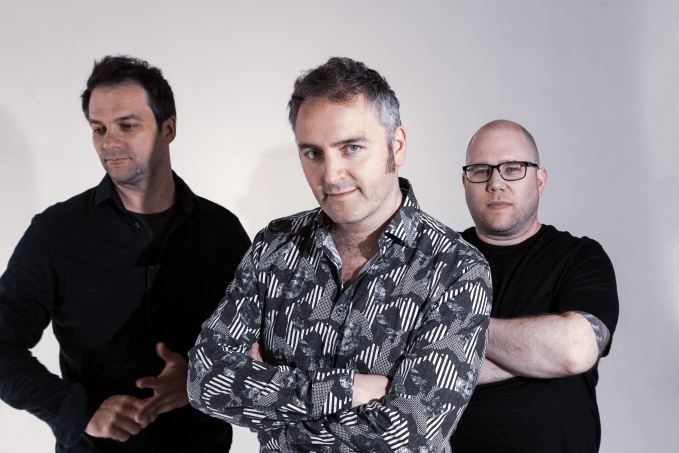
TSOFDs: Hi Paul, thanks for taking the time. We stumbled across your new material via the BBC DJ Tom Robinson. He seems a very supportive guy when it comes to promoting new/alternative music – is this the case? Are there any other DJs you would pinpoint that are doing a great job of championing independent UK artists nationally? Who do you tune into when you’re on the lookout for something new or different?
PM: Hi there Fighting Dogs. It’s been quite a surprise getting some airplay. I know that most things people get to listen to on any station have generally been placed there in some way. There is often an industry of people meeting up, making plans and scheduling in the artists so to get even a single play is an achievement when you haven’t got someone behind you. Tom Robinson is particularly good at being open and accessible to new artists and goes out of his way to listen to and play the things that float his boat. I’ve got to hear lots of great new stuff on his show that would never have found its way to my ears. These days, everyone can broadcast their music in some way so it’s quite daunting to know where to start looking for something new. The traditional channels will always be full of the things that are being paid for and promoted, so it takes effort to dig deeper. Services like Spotify now have sophisticated ways in marketing and placing new music to appear in front of you so there are less and less coincidences. You would need to explore further to find something genuinely unpromoted. I’ve always loved going to gigs – local ones, random ones in whichever town I’m in, etc. People need to make an effort, be brave and physically buy the record of the band they’ve just seen and liked regardless of whether it’s an ‘established act’ or not.
TSOFDs: Great answer. Anyone just coming across your stuff for the first time should rightly come to the conclusion you’re by no means a newbie when it comes to the business of songwriting. Can you give us a summary of the projects you’ve been involved in prior to or in addition to your work as a solo artist? When and how did you first get started?
PM: I’ve been in The Scaramanga Six since 1995. We’ve never stopped and still regularly write, record and play whenever we can. It’s a proper rock cottage industry that refuses to cease. The thing is that where some people have a go at being in a band then life gets in the way, they tend to stop – I can’t do that. Just because I’ve got a really tight deadline or a stack of bills to sort out, it doesn’t mean I’ve not still got a head full of ideas that keep appearing. I can’t just switch it off and ignore it. The Scaramanga Six have always seemed to find a way to keep existing despite everything and we are about to start on our next album. Me and Steve from The Six have also spent the last couple of decades as part of an educational pop outfit called Being 747 that toured schools and science festivals playing songs all about the history of life on earth and other sciences. Dave Cooke is the main man behind all of that and is a true songwriting genius. The solo album is the same as being in The Scaramanga Six except it is a slightly different musical palette.
TSOFDs: Leeds (and its surrounding areas) is increasingly well known for its progressive, inclusive, rich and varied music scene, and a certain DIY spirit. Does this assessment ring true with your personal experiences?
PM: I’ve gigged in and around the Leeds scene for years and it is always full of weird and wonderful musical activity. There are still lots of small places you can discover where bands are playing. Walk around the Hyde Park area and you’ll hear something coming out of a student’s bedroom. When we created Wrath Records in 2001, there was so much going on that we were probably one of dozens of similar labels putting out stuff at that time. The breadth of the music scene is also pretty astounding – there’s a hell of a lot of urban and homegrown studio acts putting stuff out. Definitely a DIY ethos all round, backed up by audiences still willing to find their way up the stairs of a pub to a back room to hear some sweaty noise on a Tuesday night.
TSOFDs: Do you see any significant challenges on the horizon regarding the health of live music in Leeds or more widely in the UK? Would you say the current environment is hostile towards artists or supportive, and how does this compare to times gone by?
PM: The biggest challenge is not to make live music but to find a way of getting people to notice you. There is always a place to play and if you can’t get a gig in a traditional venue, you can put one on yourself. Or you could broadcast it yourself. More people are making music now than ever. I think the main difference in live music these days is the way it is approached. Groups can often see the live gig as the thing they do to play their studio creations. Perhaps a band didn’t exist, but merely the ideas of one person on a laptop with a lot of plugins. Then a gig happens and the music you hear is a strange concoction of layers played from a Mac and a selection of assembled musicians each with their own ‘set up’. It is all a bit clean. I’d like to walk into a pub, chance upon a group of people who have barely rehearsed, are too drunk to play and can’t even remember how the song ends – that’s much more exciting.
TSOFDs: True. Sometimes it’s more fun when it sounds like the wheels could come off at any moment. Let’s move on to your solo work. We were blown away by your song ‘Estranged’. When it comes to the instrumentation/arrangement/production/engineering did you work completely alone? We’d love to have some backstory on how this track was created.
PM: I sat in front of a 10 year old laptop with a vastly outdated version of Garageband in front of me. It has a small selection of loops you can pick and throw onto a timeline. I figured that I’d have a go at not writing a song but simply pulling looped beats down then randomly writing some musical phrases with a rubbish sounding string sound to see what would stick. Then I started singing over the result and a song was formed. Actually one of the first songs I’ve written not using a guitar. Once this demo was done, I got Mitch and Ant who are a rhythm section to play along to the actual track. We then recorded all of this properly at 2Fly Studios in Sheffield with Alan Smyth, keeping most of the rubbish Garageband demo on it. Then I got in touch with a long-time friend and collaborator Spike Scott who is a composer for TV shows. Spike took the demos and recreated the string arrangements with a lot more whistles and bells on. I effectively produced everything, making tweaks to the arrangements until the dynamics were right. Then I decided to play a sax solo in the middle of it all.
TSOFDs: That’s a really cool insight. Sonically speaking, do you think ‘Estranged’ kind of encapsulates the rest of the material on your new record – all similarly big-sounding?
PM: ‘Estranged’ was one of the last tracks I’d written for this album – this is often the case with a set of songs. You start off in one place then the last few elements seems to be the distillation of everything. ‘The Dissolving Man’ is all very autobiographical and I wanted each track to be a short film in its own right. The whole thing is played as a three-piece – myself, Ant and Mitch. Then I just threw whatever I felt was right over the top. I wanted this to be a sophisticated record, with lots of attention to natural dynamics and arrangement. The sound in my head is big, so things are always going to be big.
TSOFDs: What is your philosophy in terms of taking the new album to the stage? Are you trying to stay true to how the songs are presented on the record or do you strip things down? Who accompanies you?
PM: The plan was to be able to gig easily. We’ve already been playing this material live over the last few months – either as the three-piece band with backing tracks or just me on my own singing karaoke style to the whole recordings. Both seem to work well – it is all about trying to create a vehicle for performance. I’m not interested in stripping things down even if it’s just me – acoustic act I am not.

TSOFDs: As you’ve stated, the title of the new album is ‘The Dissolving Man’. You’ve already touched on how it’s autobiographical. This title, combined with the title of the aforementioned song ‘Estranged’, more than hints at themes of alienation. Would you say this is something of a lyrical thread running through the LP and, if so, what has prompted this? If not, please tell us what has inspired these titles.
PM: I’m a middle aged man and things are falling off already. As you get older, you carry more baggage and life experiences with you. It is always good to incorporate things you observe from other people’s lives too. I mentioned that a lot of this was autobiographical but only as a reference to creating much more exaggerated stories to listen to. It is all a work of fiction but like any good crime writer, there has to be some element of darkness already in the mind to conceive of things.
TSOFDs: The group you also play in, The Scaramanga Six, recorded with Steve Albini – what was it like to record with one of the greats?
PM: We paid him to do a job. He was very workmanlike and wore a boiler suit.
TSOFDs: Ha – that certainly rings true. For our UK readers, when is the best time to catch you playing songs from the new record live?
PM: I need to arrange some more gigs. Anyone reading this can help by putting us on. Have gig, will travel.
TSOFDs: Promoters, what are you waiting for? Thanks for answering our nosey questions Paul – we wish you the very best for the new album and indeed all your future endeavors.
The Dissolving Man is out now.
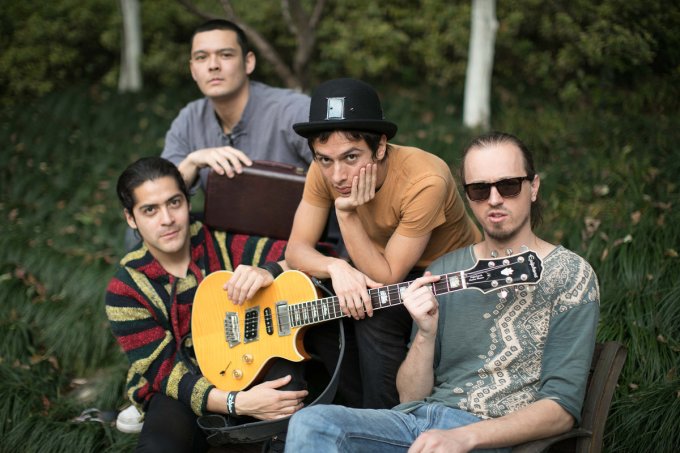
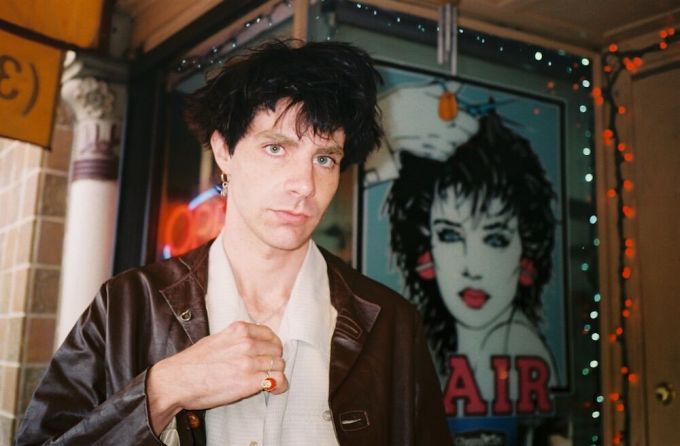 TSOFDs: Hi Emerson, thanks for conversing with us. Please tell our readers about your early life – where are you from and what led you towards a career in music?
TSOFDs: Hi Emerson, thanks for conversing with us. Please tell our readers about your early life – where are you from and what led you towards a career in music?


